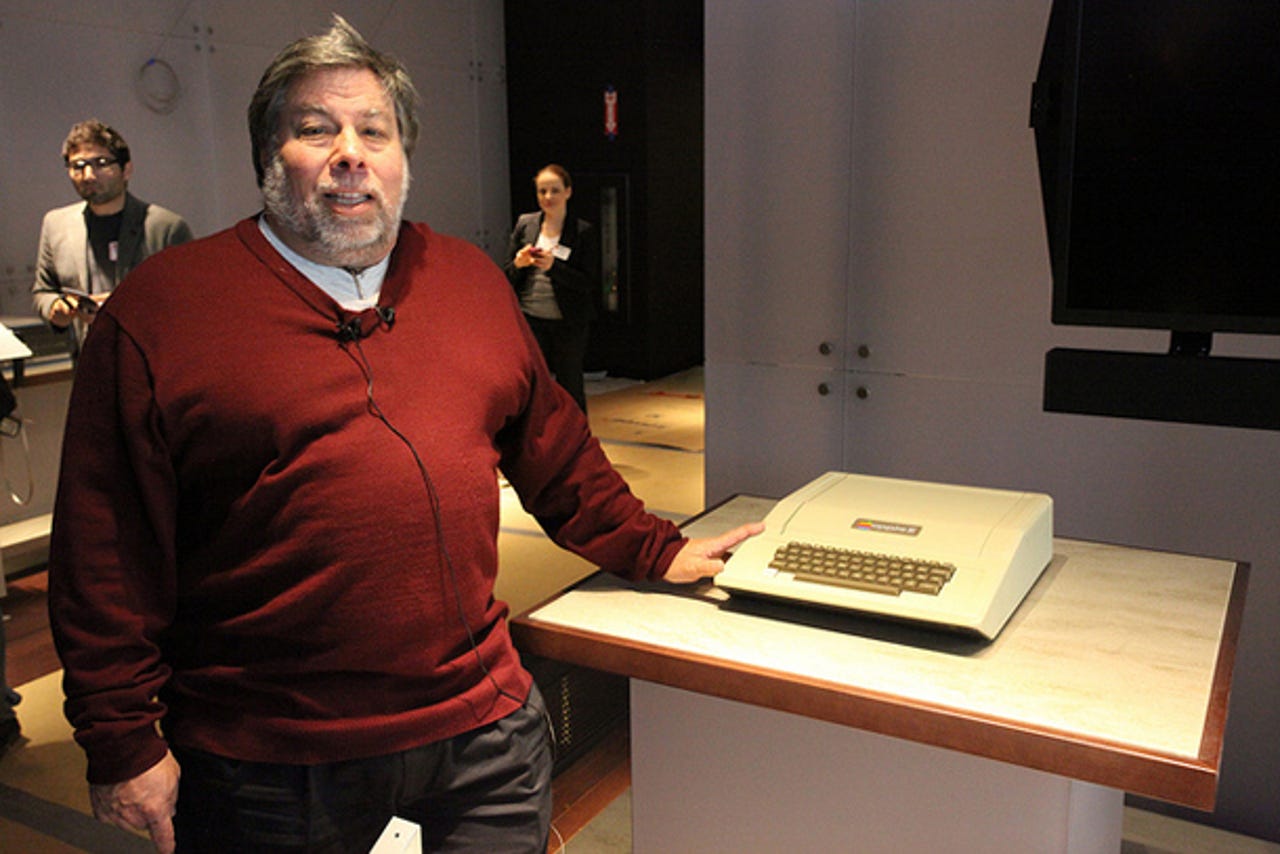Apple co-founder Steve Wozniak voices support for right to repair


Apple co-founder Steve Wozniak has thrown his support behind the growing right-to-repair movement, amid ongoing battles between tech giants and users of their products.
"I'm always totally supportive, and I totally think the people behind it are doing the right thing," Wozniak said in a recent Cameo video. "We wouldn't have an Apple had I not grown up in a very open technology world."
The video was filmed in response to a question posed by right-to-repair advocate Louis Rossmann.
The Woz alluded to his own experience as a young engineer and that open-source tech was instrumental to his ability to learn as an engineer.
"That aspect of self-repair is also the motivation and joy of just technical people … [of] knowing how to make the right kind of software and develop the right kind of hardware … doing these things just to prove to themselves, they've got a little special skill in the world and they can show it off to others. [It's] very motivating for creative minds … that's how I grew up," he said.
He also pointed out being able to self-repair enabled him to manipulate the input on a TV and eventually show "the world the future of personal computers [was] going to be a keyboard and a TV".
Wozniak continued saying that when the Apple II computer was released, it was shipped with full schematics designs, software, source listings, and code listings.
"The Apple II was modifiable and extendable to the maximum. People figured out how to convert the early display into having lowercase characters … and this product was the only source of profit for Apple for the first 10 years of the company; this was not a minor product …there were a lot of good things about that being so open that everyone could join the party," he said.
"Sometimes when companies cooperate together with others, they can actually have better business than if they're totally protective and monopolistic and not working with others just totally competitive," Wozniak added.
As part of the video, he also took the opportunity to question why tech giants removed users' right to repair.
"I believe that companies inhibited because it gives the company's power, control over everything, and I guess a lot of people's minds, power over others equates to money and profits," Wozniak said.
"Hey, is it your computer, or is it some company's computer? Think about that. It's time to start doing the right things," Wozniak concluded in the video.
For years, right-to-repair groups have accused the Cupertino giant for actively locking out independent businesses from the ability to repair Apple products and for designing products in a way that discourages repairs.
Back in 2019, Apple launched an independent iPhone repair program to give independent phone repair shops access to genuine Apple parts, training, and tools. The company followed this up last year by giving third-party repair shops access to parts and resources to service Macs.
The program was initially only available in the US before it was expanded to Europe and Canada last year. In March, Apple said the program would be expanded to more than 200 countries, which would be nearly every country where Apple products are sold.
ZDNET Recommends
During a press conference earlier this week, it was revealed that US president Joe Biden is set to sign a new executive order that aims to stop manufacturers from preventing people from repairing kit themselves or through independent repair shops.
"As part of the President's forthcoming executive order on competition... the U.S. Department of Agriculture announced it will engage in a series of rulemakings to increase competition in agricultural industries to boost farmers' and ranchers' earnings, fight back against abuses of power by giant agribusiness corporations, and give farmers the right to repair their own equipment how they like," Whitehouse press secretary Jen Psaki flagged on Tuesday.
The right-to-repair order, which is directed primarily at farmers and farm equipment, could also have broader implications for all consumer electronics.
New rules were also recently introduced to allow certain electrical goods sold across Europe to be repairable for up to 10 years. These included all new washing machines, hairdryers, refrigerators, and displays -- including televisions.
In Australia, the Productivity Commission has been requested by the Australian government to examine the state of consumer's ability to repair faulty goods at reasonable prices.
The need for the inquiry was cited due to the Competition and Consumer Act not capturing right-to-repair issues, and thereby only allowing "limited rights or protections" to repair, the inquiry's terms of reference state.
Related Coverage
- Right to Repair doesn't go far enough (here's what we need to happen to see real change)
- MacBook Pro not charging? Apple might repair it free of charge
- Macs can now be repaired by some independent shops, says Apple
- Apple will fix your Apple Watch for free if you run into this charging problem
- iOS 14.4 kicks off crackdown on non-genuine iPhone cameras
- Apple offers free iPhone 11 repair for touch display module problem